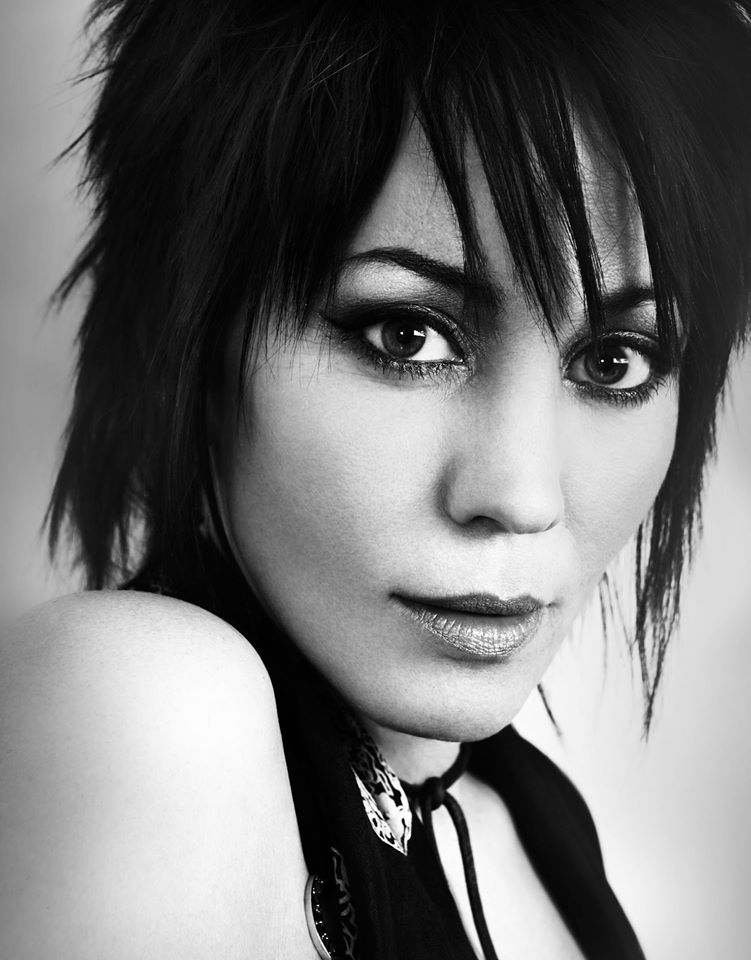If there was one woman who represents the bad-girl image of rock-n-roll, it has to be Joan Jett. Joining The Runaways at 16 years old, Jett grew up fast, having to learn how to handle herself in an adult world while enduring the sexism of the male-dominated rock scene of the 70s. She took that experience to parlay that into forming her own band, Joan Jett & The Blackhearts, which achieved great commercial success. It was during this time that she started to gain respect as a songwriter and musician with songs about female empowerment, sexuality, and independence. Her legacy as a rebel and a fighter for women’s rights was cemented long ago, but continues to live on through the numerous female artists she’s influenced and worked with even to this day.
The Runaways (lead singer Cherie Curry, guitarists Lita Ford and Joan Jett, drummer Sandy West) all fought for equality while learning how to be professional musicians on the job as teenagers. They were young and toured the world unsupervised while opening for male acts like Cheap Trick, Van Halen, also Tom Petty and the Heartbreakers. Being in an all-girl rock band in the mid-70s was almost seen as a death trap since there wasn’t strong support for female bands. Their skills were always questioned by critics and peers alike and all the while they endured push-back by record executives, got spit on, and thrown garbage at while on stage. Needless to say, these experiences eventually gave the girls tough skin and were the catalyst to Jett’s bad girl image.
After many disputes and creative differences, The Runaways split and Jett broke out as solo rock singer/songwriter and musician who sang about sex, partying, freedom, and reality. She formed her own band as well as her own label (Blackheart Records) after being rejected twenty-three times by other record labels (the experience would be the theme for the video for “Bad Reputation”). The result- Jett became be the first female artist to found her own label with direct control over an independent record company that would become the blueprint for other independent artists. Joan Jett and her backing band The Blackhearts would have the last laugh at the labels who turned her down, as they had success right out of the gate, scoring one of the biggest songs of 1982 with their cover of “I Love Rock ‘n’ Roll” that topped the Billboard charts for seven straight weeks. They would go onto have commercial success on the rock charts with “Crimson and Clover” (Tommy James and the Shondells), “Bad Reputation”, “I Hate Myself For Loving You”, “Do You Wanna Touch Me (Oh Yeah!) and others. Jett’s success, longevity and impact led to her being named as the Queen of Rock n Roll and Godmother of Punk as critics abroad recognize her for her talent and vision with Rolling Stone naming her as one of the “100 Greatest Guitarists of all time”.
Nowadays when Jett isn’t in on stage, she’s a record producer, occasional actress and an advocate for PETA and the LGBTQ+ community. Jett is still actively touring whether it’s at a small fair or big arenas (she’s slated to tour with Motley Crue and Def Leppard this summer). Jett has influenced and inspired women for decades ranging from Bikini Kill, Britney Spears, Hole, Haley Williams of Paramore, Miley Cyrus, and countless others. In 2015, when Cyrus inducted Joan Jett and the Blackhearts to the Rock and Roll Hall of Fame, she compared Jett to Superwoman stating, “She made the world evolve, her life and her success is proof that we can self-evolve. I want to thank you for fighting for our freedom.” Jett is still paving the way for the other future female rockers and breaking barriers in a pop ruled world and can be heard not only on classic rock radio but even in the current single “Oh Yeah!” by Green Day which samples Joan Jett’s cover of “Do You Wanna Touch Me”. Joan Jett is far from done with challenging the double standards in music and society and will forever be seen as a role model for the strong independent woman.

